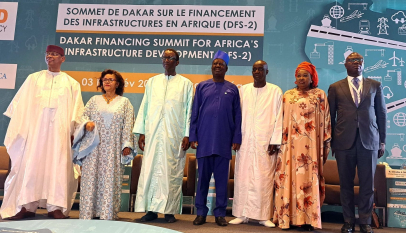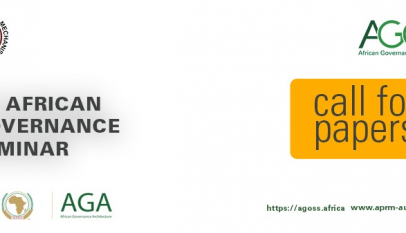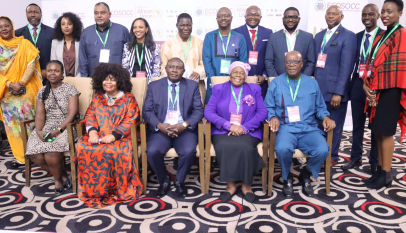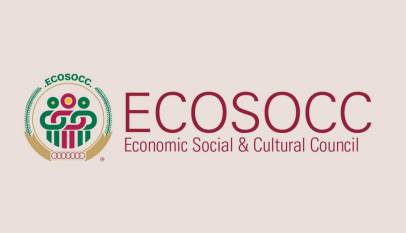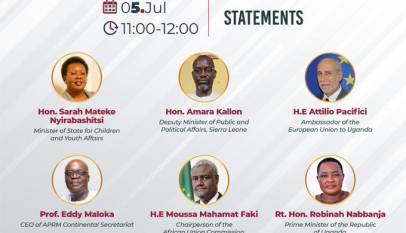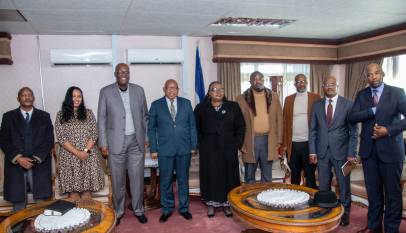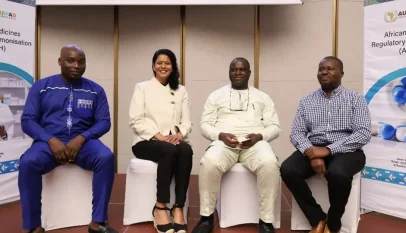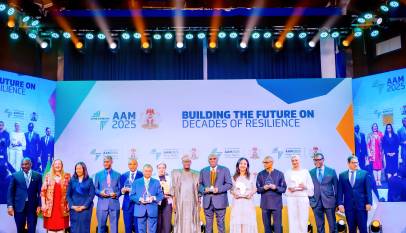SPOTLIGHT | Ibrahim Gambari: The ‘accidental diplomat’ at the helm of AU’s governance reform agenda
Ibrahim Gambari, the preeminent ex top UN diplomat cum current chairperson of the African Peer Review Mechanism’s Panel of Eminent Persons, speaks about his over half-a-century long carrier in the academia and global diplomacy
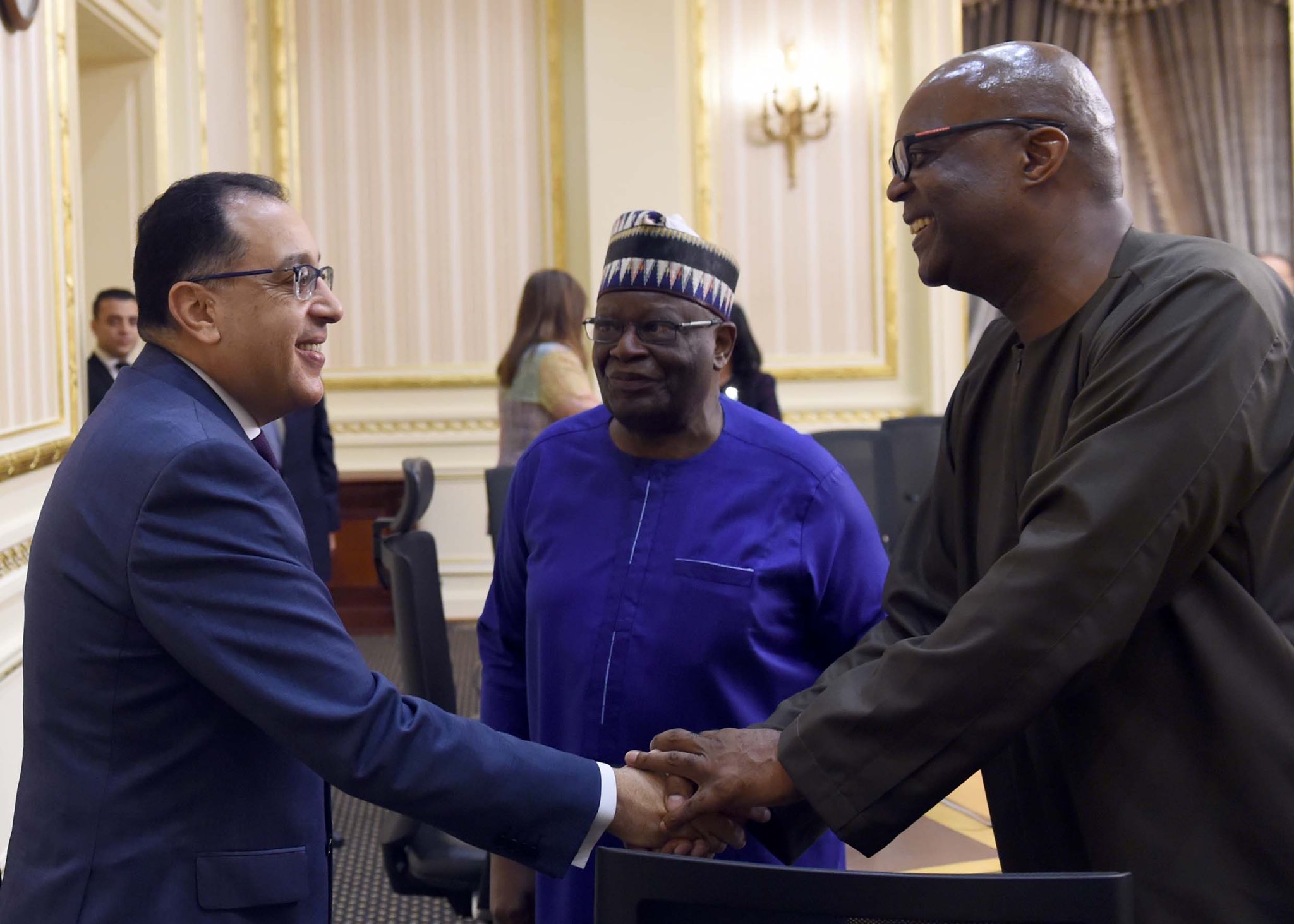
Even at the ripe age of seventy-five, Ibrahim Gambari, chairperson of the African Peer Review Panel of Eminent Persons, doesn’t seem to be slowing down; in an eventful and meritorious carrier spanning over half-of-a- century, he has worn so many caps, so many times. Gambari had been a university scholar, researcher, government minister, ambassador, administrator, global diplomat, civic activist, university chancellor and pro chancellor et al.
Although best known as a UN diplomat, thanks to destiny which continued to drag him into diplomacy, his first love and lifelong passion has remain the academia, having started his carrier as a lecturer at City University, New York in 1969. Born into a Nigerian aristocracy in 1944, Gambari is a prince of Ilorin in northcentral Nigeria, part of the defunct Sokoto Caliphate – one of the most powerful empires in nineteenth century Africa. On two occasions, an opportunity to ascend to the throne of his ancestors had presented itself to the prince but the scholar-turned-diplomat opted for global diplomacy.
When Gambari received his PhD and MA in Political Science/International Relations from Columbia University, USA, in 1970 and 1974, respectively, his plan was to venture into the academia, teach and mentor young minds as well as dedicate himself to a lifelong carrier of continues learning. Earlier on, he had received a bachelor’s degree in Economics from the London School of Economics and Political Science (LSE) in 1968. His passion for scholarship was so deep that after joining the Masters in International Affairs (MIA) programme at Columbia, he abandoned it a year later, for what he refers to as “a proper master’s degree”.
After what will eventually turned out to be a short-lived academic spell at universities in the US and Nigeria, in 1984, the young scholar was conscripted into public service as Nigeria’s external affairs minister. Six years later, he was made Nigeria’s ambassador cum permanent representative to the United Nations, serving for 9 consecutive years between 1990 through 1999 – the longest in Nigeria’s history. Upon the expiration of his tenure in 1999, then Secretary General Kofi Annan appointed Gambari as first-ever special adviser on Africa; in that capacity he mobilized international support for the then newly established New Partnership for Africa’s Development (NEPAD), working closely with heads of state and government as well as key policymakers to grow NEPAD.
In 2005, Annan appointed Gambari the first-ever non-Westerner under-secretary-general for the strategic Department of Political Affairs (DPA) at UN Headquarters. During his long UN carrier, Gambari was at various times chair of the United Nations Special Committee Against Apartheid (1990-1994); the Resident Special Representative of the Secretary-General and Head of the United Nations Mission to Angola (2002-2003); UN Secretary-General’s Special Envoy on Cyprus, Zimbabwe and Myanmar (2005 – 2007); Under-Secretary-General and Special Adviser on Iraq Compact and Other Issues (2007 – 2009). Between 1990 and 1999, he was chair of the United Nations Special Committee on Peacekeeping Operations.
In 2010, then Secretary General Ban Ki-Moon appointed Gambari as the Joint Special Representative of the Secretary General and Chairperson of the African Union Commission and Head of the African Union-United Nations Hybrid Operation in Darfur (UNAMID). The first-ever such joint UN-AU peacekeeping mission, UNAMID was at the time the world’s largest international peacekeeping mission. Upon retiring from the UN in 2012, he founded the Savannah Centre for Diplomacy, Democracy and Development (SCDDD), a think-tank committed to becoming an African centre of excellence for policy research and advocacy in diplomacy, democracy and development.
‘A teacher by choice, diplomat by accident’
Although his passion lies in the academia, Gambari’s career path had often times taken him to mediating over conflicts as top UN diplomat or manning peacekeeping operations, against teaching in the university. “As I always say, I regard myself as a teacher by training and diplomat by accident, long accident, but nonetheless accident!” said the blue-blood diplomat extraordinaire, who seemed contented with his larger-than-life diplomatic tour de force. “In many ways, I have been privileged and with privilege come a lot of responsibility.”
Upon his return to Nigeria from the USA in 1977, Gambari joined the Ahmadu Bello University in Zaria as senior lecturer, rising through the ranks to become a full professor in 1983. His sojourn in global diplomacy began at the Nigerian Institute of International Affairs (NIIA) where he was director general, shortly before his appointment as Nigeria’s external affairs minister.
“I was a minister at the age of 39, a civilian in a military government. I have worked with 7 Nigerian heads of state; there is hardly any Nigerian who is not a [carrier] civil servant who has worked with 7 heads of state! [President Shehu] Shagari appointed me at the Institute of International Affairs; [General Muhammadu] Buhari appointed me as minister. [General Ibrahim] Babangida appointed me as ambassador to the UN where I ended up working with [Ernest] Shonekan, [General Sani] Abacha and Abdulsalam Abubakar,” Gambari told African Newspage.
“At the UN, I worked with 4 secretary-generals: Javier Pérez de Cuellar, Boutros Boutros-Ghali, Kofi Annan and Ban Ki-Moon. I submitted my papers to Pérez de Cuellar in 1989. After him we, the African Group, fought for an African secretary general; at the time, as Nigeria’s ambassador, my preferred candidate was Olusegun Obasanjo whom I was instructed to lobby for. But I was also the chair of the African Group at the UN, so I was also lobbying for an African candidate and we were able to eventually get Boutros Boutros-Ghali as the first secretary general from Africa.”
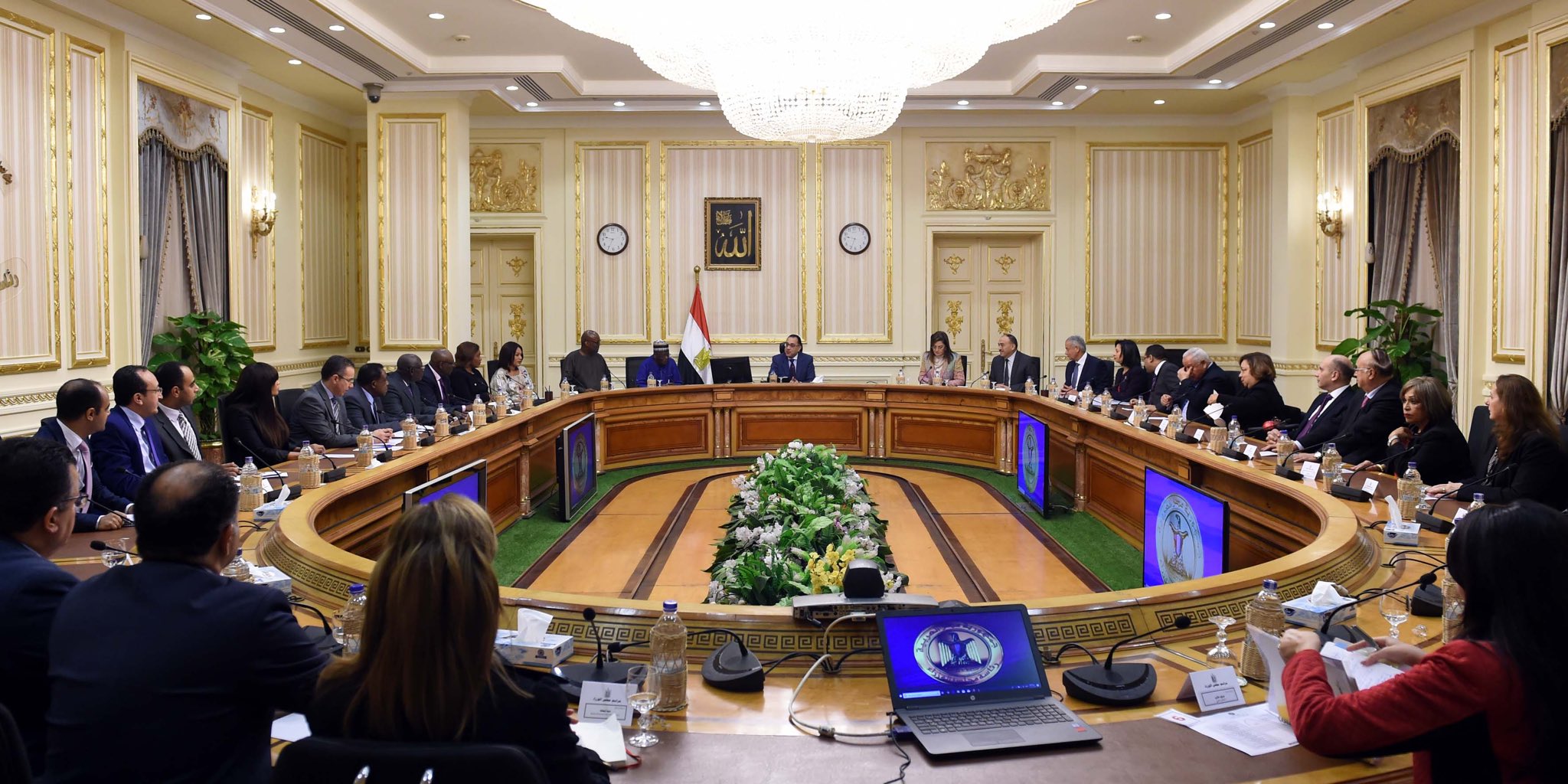
APRM and state of governance in Africa
Gambari believes Africa has in many ways made a significant progress in democratic governance, particularly the fact that none of the 55 Member States of the African Union are currently under military rule. “The Constitutive Act of the African Union says any Member State in which there is an unconstitutional change of power is automatically suspended from the Union. For this, not only small countries like Magadascar and Gambia have been suspended but also bigger African countries like Egypt and Sudan,” he said.
The African Peer Review Mechanism (APRM) is a voluntary self-assessment mechanism for the AU Member States; it seeks to promote democracy, governance, and human rights, as part of the framework for the implementation of the New Partnership for Africa’s Development (NEPAD). The AU Assembly of Heads of State and Government later integrated APRM into the AU as a specialized agency and extended its mandate to include overseeing the implementation of Africa’s key governance initiatives including monitoring of the implementation of AU’s Agenda 2063 and United Nations Sustainable Development Goals (SDGs).
APRM began in 2003 with 15 members which had risen to 38 by end of 2019; it seeks to achieve universal accession among all the 55 AU Member States by 2023. Although Gambari says APRM should remain a voluntary mechanism, he thinks AU Member States need to show “more commitment” by joining the APRM so as to achieve universal accession. “The good thing is that now the APRM is funded by the AU, it is now an organ of the AU. Its mandate has also been extended but we should strengthen the APRM by ensuring universal accession,” he urged.
Moreover, he seems seriously worried about the current rise of ‘Third Termism’ across many African countries where governments in power are trying to tinker with their mandates so as to extend their stay beyond the mostly constitutionally accepted two-term limits. A striking example is Guinea Conakry where the incumbent government wants to change the constitution to allow President Alpha Conde run for a third term. There are rumours of similar plans in Côte d’Ivoire and Nigeria where the incumbent presidents are serving their second terms.
Gambari is also concerned about the internal challenges across Africa’s big powers – Libya, Nigeria, South Africa, and Egypt – which, he said, had rendered them incapable of providing Africa with the needed leadership in an era of anti-globalisation, nationalism, racism, and anti-migration. “The world is now a lot more dangerous than it was at the end of the Cold War; we thought we were going to have a multi-polar world but right now we don’t even know what type of power configuration we have. More than ever, Africa needs unity; we need to strengthen our institutions and the APRM is one of the instruments for achieving that,” he proffered.
Speaking on the role of poor governance in the current spate of violent conflicts around Africa, Gambari says most of the continent’s conflicts are: “Crisis of governance. It is about politics of exclusion, corruption and poor governance. For me, the prerequisite [for peace] is to do governance properly.” As a former Joint Special Representative of the UN Secretary General and Chairperson of the African Union Commission and Head of the UN and AU Hybrid Mission in Darfur (UNAMID), he thinks “the classic UN peacekeeping” missions in Africa such as Congo, Western Sahara and Mali, have largely failed to deliver peace.
Gambari believes the successes recorded by UNAMID was largely because it’s a joint UN-AU mission and therefore calls on African countries to take ownership of such missions; and also do more to address the various socioeconomic development challenges pervading the continent, as a panacea for the existing chains of violent conflicts around Africa as well as a means for preventing the recurrence of the conflicts. “All African peacekeeping operations should be joint missions. We should put our money where our mouth is. Let’s put our own troops on the ground and also fund the missions ourselves,” he told African Newspage.
AGR and APRM country reviews
During its 32nd Ordinary Session held in Addis Ababa, Ethiopia in February, 2019, the Assembly of the African Union Heads of State and Government, adopted the inaugural Africa Governance Report (AGR), and urged Member States to consider its recommendations, with a view to enhancing good governance and sharing best practices at both country and continental levels. The Africa Governance Report (AGR) is a baseline study on the state of governance on the continent.
Gambari believes the biannual AGR which was produced by APRM is a “very important instrument” in advancing good governance on the continent. Although he believes the quality of the inaugural edition could be improved upon by incorporating “more rigorous analysis and data,” he said it was still a good “starting point.” He therefore advocates the need for synergy between the recommendations of the AGR and the National Programme of Action (NPoA) of reviewed countries under the APRM. NPoA is a set of short-term, medium-term and long-term actionable goals agreed upon at the end of country reviews by APRM, with clear steps and deadlines.
Essentially, all AU countries that have acceded to the APRM are subjected to four types of reviews; they are the Base Review carried out upon a country’s becoming a member of the APRM, followed by a Periodic Review conducted every four years. Others are the Requested Review, carried out upon specific request by the member country itself (which is outside the framework of mandated reviews); as well as a the final Review specially commissioned by the APR Forum of Heads of State and Government – APRM’s highest decision-making body – only when there are early signs of pending political and economic crisis.
As chairperson of the 7-member APR Panel of Eminent Persons which oversees the country review process to “ensure its independence, professionalism and credibility”, and consequently report to the APR Forum, Gambari’s role in APRM is as larger than life as his over 50-year long carrier. As more AU Member States are also becoming APRM members and opening themselves up to the various types of reviews, the septuagenarian feels his role will become even more tasking; hence, the panel might have to be expanded to cope with increasing number of reviews.


